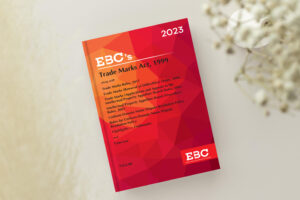Delhi High Court: In a case wherein, Christian Louboutin SAS, Plaintiff 1, and Plaintiff 2, Clermon ET Associes, France, filed a suit against the Shoe Boutique, the defendant, to restrain them from manufacturing and selling of identical spike design shoes and footwear, Pratibha M. Singh, J.* opined that the acts of the defendant were nothing more but an attempt to pass off its own goods as the plaintiff's and directed the defendant to abide by its undertaking and should not copy the plaintiff's designs and in case of any breach, the defendant would be liable to pay a lump sum amount of Rs. 25 lakhs as damages to the plaintiffs.
Background
In the instant case, the plaintiffs were an entity that existed in France and were well-known for ‘red sole' shoes which were manufactured and sold by them. The ‘red sole' on heeled shoes was a signature design of the plaintiffs which was also registered as a trade mark.
The plaintiffs stated that the plaintiff's product was endorsed by well-known celebrities and was also depicted in well-known TV series and films. The plaintiffs stated that their shoes had acquired enormous reputation and goodwill worldwide including India and in India, the plaintiffs' products with the unique designs had been sold since February 2012.
The plaintiffs further stated that, in around 2010, they had also created a new unique ‘spiked shoe style' with spike patterns for both men and women. The plaintiffs further stated that the ‘spiked shoe style' was inherently distinctive and it could be instantly recognised as emanating from the plaintiffs alone.
The plaintiffs filed the present suit being aggrieved by the defendant's manufacture and sale of identical spike design shoes and footwear. It was submitted that the defendants operated in various malls including Select Citywalk Mall, Saket from where the spike footwear had been picked up by the plaintiffs' investigators. The plaintiffs contended that the defendant had identically copied the shoe designs and was manufacturing the identically designed shoes with the same get up. The plaintiffs further contended that their reputation could be evaluated on a ChatGPT query, wherein when asked whether the plaintiff was known for spiked men's shoes, the ChatGPT affirmed that the plaintiffs were known for their iconic, red-soled shoes, including spiked styles for both men and women.
On the other hand, the defendant contended that their shoe designs were on a ‘made to order' basis, only when the customer requested for the same. The defendant further submitted an undertaking that the defendant would not in future imitate, manufacture or sell any shoes which were imitative of the plaintiffs' designs.
Analysis, Law and Decision
The Court stated that in Christian Louboutin SAS v. Mr. Pawan Kumar, 2017 SCC OnLine Del 12173, the ‘red sole' mark of the plaintiffs had already been declared to be a well-known mark under Section 11(6) of the Trade Marks Act, 1999.
The Court stated that it did not recognized the plaintiff's monopoly over all spiked or coloured soles. The Court further opined that, for an injunction to be granted, the impugned products ought to be a colourable or slavish imitation of the plaintiff's get up and designs.
The Court observed that the responses from ChatGPT and the one relied upon by the plaintiffs showed that the said tool could not be the basis of adjudication of legal or factual issues in a court of law. The Court opined that the response of a Large Language Model based chatbots such as ChatGPT, depends upon numerous factors which included the nature and structure of query put by the user, the training data, etc. The Court further stated that the accuracy and reliability of AI generated data was still in the grey area and there were possibilities of incorrect responses, fictional case laws and imaginative data being generated.
The Court stated that undoubtedly, at the present stage of technological development, AI could not substitute either the human intelligence or the humane element in the adjudicatory process and at best it could be utilized for a preliminary understanding or research and nothing more.
The Court, after perusing the parties' shoe designs, opined that there had been a clear intention to imitate and acquire monetary gain on the strength of the plaintiff's reputation and goodwill. The Court further opined that undoubtedly, the defendant's products were knock-offs or look-alikes of the plaintiffs' distinctive shoes and footwear. The Court stated that the defendant had imitated many designs and copied all the essential features of the plaintiff's footwear such as ‘red sole' and ‘spiked shoe style'.
The Court took note of the defendant's undertaking and directed the defendant to abide by the undertaking to not copy or imitate any of the plaintiffs' shoe designs. The Court stated that if any breach of the undertaking was found, the defendant would be liable to pay a lump sum amount of Rs. 25 lakhs as damages to the plaintiffs.
Further, considering that the defendant was also using the pictures of well-known Bollywood celebrities on its Instagram account and also had sold the shoes in high end malls, the Court directed the Defendant to pay Rs. 2 lakhs as costs to the plaintiffs.
Accordingly, the suit was decreed, and all pending applications were disposed of.
[Christian Louboutin SAS v. The Shoe Boutique, CS(COMM) 582 of 2023, decided on 22-08-2023]
Advocates who appeared in this case :
For the Plaintiffs: Pravin Anand, Dhruv Anand, Udita Patro and Nimrat Singh, Advocates.
For the Respondent: Amit Verma and Siddhartha Luthra, Advocates along with Kunal Makkar
*Judgment authored by- Justice Pratibha M. Singh







